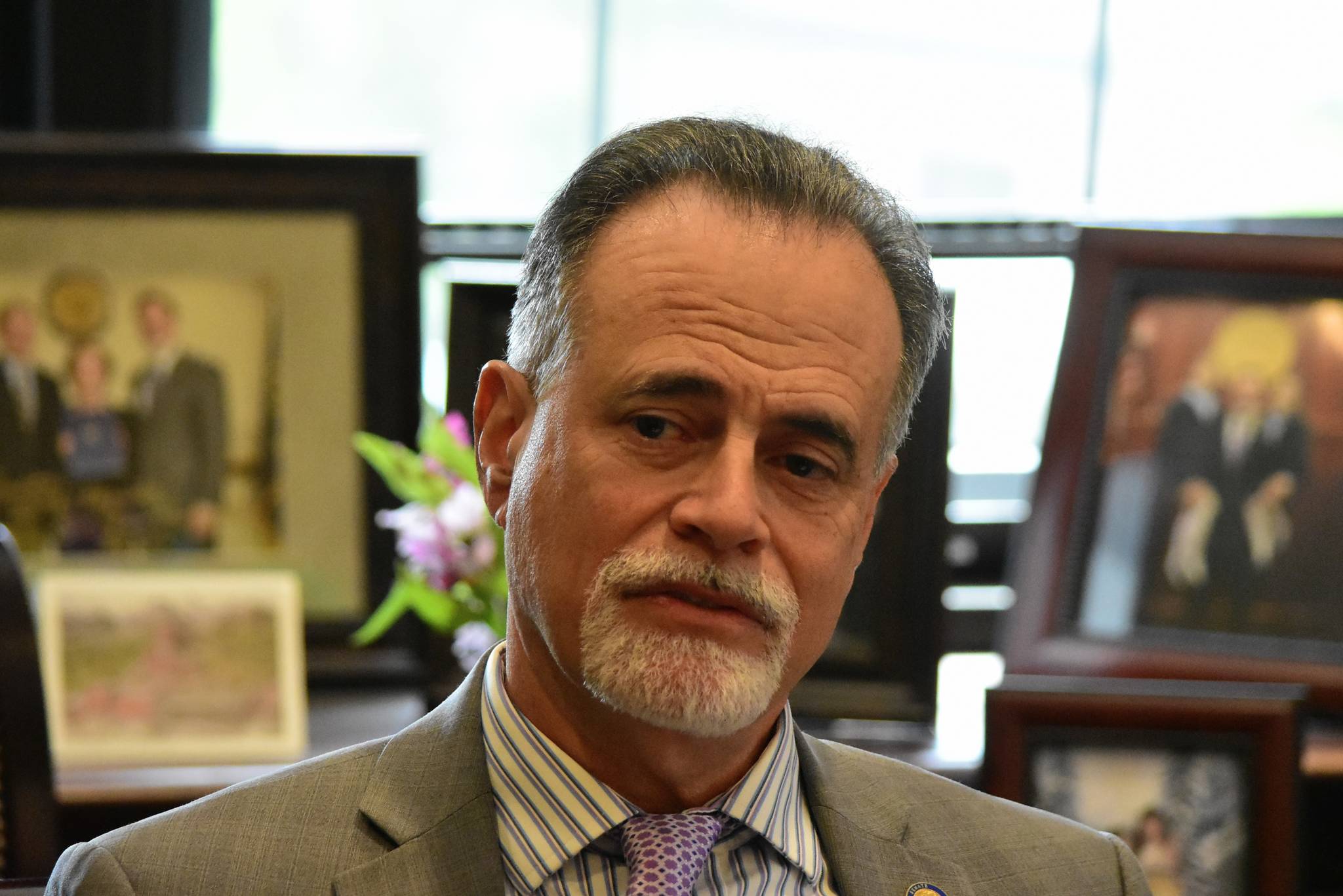Lawmakers voted to include a $2,300 Permanent Fund Dividend in the state’s budget in a bill passed just before midnight Wednesday. The bill isn’t finalized yet, and changes to the bill will be made by a bicameral conference committee in the coming weeks.
It’s possible the amount could change in the conference committee, Senate President Peter Micciche, R-Soldotna, told reporters Thursday morning but refused to speculate if it would. The amount allocated, $1,534,648,008, is 50% of the maximum statutory percent of market value draw from the Alaska Permanent Fund, according to the bill, and passed by a vote of 12-8.
Just a day earlier, the Senate Finance Committee voted for a PFD of $1,000. A $2,300 PFD would be the largest in state history, according to a release from the Senate majority’s office.
A vote to allocate a $3,400 PFD based on a statutory formula ended in an even 10-10 split in the Senate, which isn’t enough to pass. For years several, mostly Republican lawmakers, have advocated strongly for a statutory PFD to be paid before money is allocated for state services but positions on the dividend vary by individual lawmaker.
The amendment for a statutory PFD was offered by Sen. Bill Wielechowski, D-Anchorage, but not supported by several Republican senators, including Micciche. The state simply doesn’t have enough money to pay a dividend of that size, Micciche said, and a vote in favor of one was disingenuous to Alaskans who still think that’s going to occur.
[Budget debate takes lawmakers into evening]
“It’s not,” he said. “I think the 50-50 is a realistic target. It passed 12-8, if you look at the members of our caucus who voted for it you’ll see our caucus feels strongly about no longer kicking the can down the road.”
In a news conference last week, Gov. Mike Dunleavy and several Republican lawmakers who’d supported a statutory PFD said they were willing to step away from that demand, recognizing the fiscal and political situation.
The Senate instead compromised on the 50% allocation, but that amount still requires the state to draw more from the ERA than is allowed under state law. That law can be waived, but any money taken out of the Permanent Fund now means fewer earnings revenues in years to come, something lawmakers from both parties are wary of.
Dunleavy has called two special sessions to deal with the state’s structural deficit, but the issue has befuddled lawmakers for years. The first special session began Thursday morning and lasts for 30 days, another session is called for Aug. 2.
Both bodies of the Legislature will assign members to the conference committee to negotiate changes to the bill. Though those representatives are elected by the majority, a vote of two-thirds in each body is needed to approve any changes. The selection process is likely to begin in the next few days, Micciche said, and lawmakers hope to finalize the budget before the end of the fiscal year on June 1.
Rep. Neal Foster, D-Nome, co-chair of the House Finance Committee, told reporters Thursday it would take at least two days before actual work in the conference committee could begin. Bodies would elect members soon and Foster said he hoped negotiations to begin over the weekend.
• Contact reporter Peter Segall at psegall@juneauempire.com. Follow him on Twitter at @SegallJnuEmpire.

